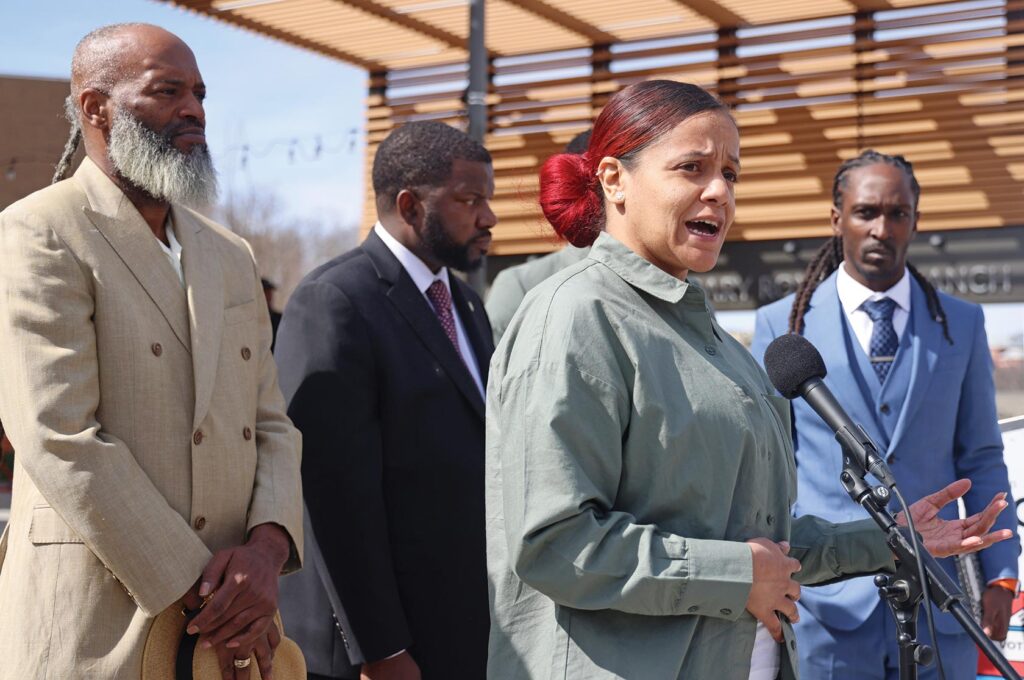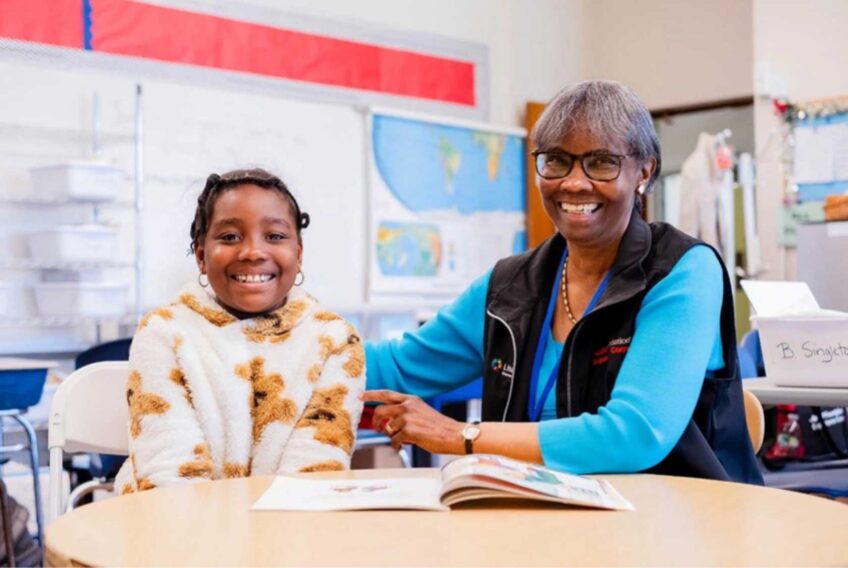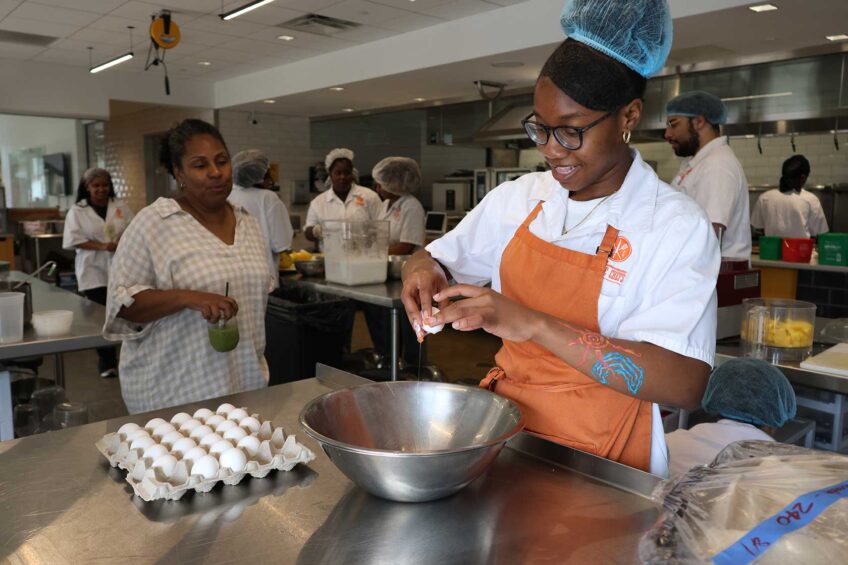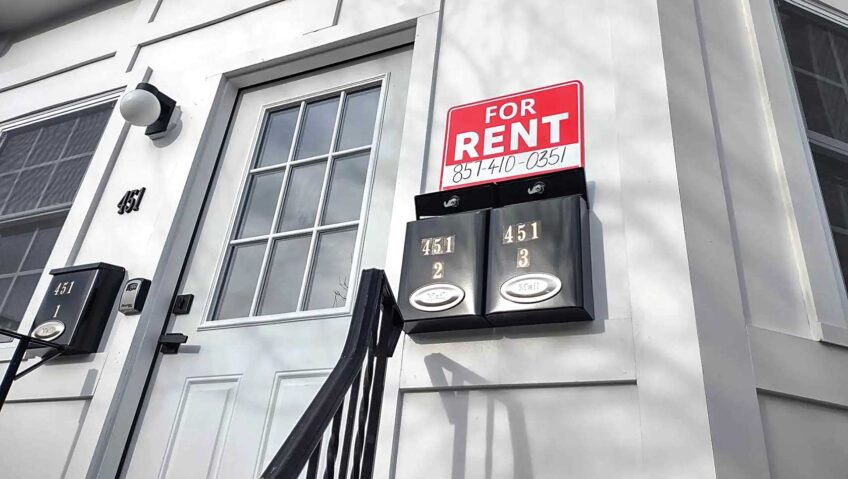
Boston Mayor Michelle Wu and her administration have set a new goal of reducing homicides across the city by 20% over the next three years.
The announcement came Friday, after a three-day-long violence prevention workshop organized and hosted by the Wu administration and the Violence Reduction Center, based at the University of Maryland. Boston is one of a cohort of cities to apply and be selected to participate in the Center’s program of implementing data-informed approaches to tackling gun violence.
The workshop was attended by several dozen community members, activists and city workers all engaged in violence prevention in Boston, a group Wu described as “people who have been in the trenches for a very long time.”
Achieving the new goal “is going to require coordination among all of us, clear goals, accountability, measuring, holding each other accountable and having a united sense that this is a priority of the City of Boston,” said Wu.
She continued, “We will not tolerate being a city where we’re watching what’s happening [from] different silos … We will not tolerate any neighborhood feeling like residents have to live in fear of violence or experience loss that ripples down generation after generation. … We have the resources, we have the expertise, we need to just put it all together.”

Isaac Yablo, senior advisor for community safety to the Wu administration, addresses a violence prevention workshop. Looking on are U.S. Rep. Ayanna Pressley, Rev. Jeffrey Brown, Boston Police Commissioner Michael Cox and Mayor Michelle Wu. PHOTO: ISAIAH THOMPSON
The target of reducing homicides by 20% — to fewer than 32 annually — by 2026, came out of workshop sessions, said Isaac Yablo, senior advisor for community safety to the Wu administration.
And the goal is, Yablo acknowledged, an ambitious one. While homicides are up so far in 2023 — there have been 12 homicides year-to-date compared to six by this time last year — the city’s current homicide rates remain among the lowest in decades, down to several dozen in recent years from over one hundred annually between 1989 and 1991. And violent crime is down overall. Bucking that trend, however, has been a rise in youth-related violent crime — a fact Wu has acknowledged repeatedly in recent months.
“The city is unique in that we have an extremely low homicide rate compared to other cities, especially on the East Coast,” noted Yablo. “But the city must do better in areas, particularly those impacted by gun violence … If we’re being honest, it’s a very small proportion of the community that has been disproportionately impacted by gun violence,” Yablo said.
Yablo said the city will be building out its violence prevention plan in the coming months, with listening tours directed at communities most affected by violence.
Thomas Abt, founding director of the Violence Reduction Center, and who facilitated the three-day workshop, said collaboration between key partners in different roles, from police to community organizers, will be critical to success.
“You simply cannot be successful in this work without key partners. Violence reduction is a team sport,” said Abt.
An approach based on data
Building on academic studies of gun violence in cities, the Violence Reduction Center’s program revolves around data-driven approaches to reducing and preventing crime by targeting specific hot spots and focusing on high-risk populations.
In a presentation kicking off the workshop, University of Pennsylvania criminologist Anthony Braga portrayed gun crime in Boston as highly localized — to the point of being concentrated largely along certain stretches of certain streets or particular city blocks.
Between 2013 and 2022, Braga said, “All of the shootings happened in just 4% of the city.”
Meanwhile, Braga said, the vast majority of shooting perpetrators, as well as victims, were individuals already known to the criminal justice system: roughly three-fourths of homicide victims and offenders had been on probation at some point before they killed or were killed.
“It stays a story of concentration, and a lot of these areas have stayed the same over time. It’s really a story of stability,” Braga noted.
Braga also asserted that much of the gun violence in Boston is perpetrated by gang members — a claim that touches on the controversial question of how the Boston Police Department identifies and tracks alleged gang activity.
Abt said reducing crime in those areas will require a focused approach with unprecedented collaboration between city agencies and community leaders — and will necessitate preventative measures along with punitive action.
But, he said, changing longstanding patterns is possible.
“You don’t need to boil the ocean. You need to focus on the highest-risk people, the highest-risk locations and the highest-risk behaviors,” said Abt.
The new push to prevent and reduce community violence is hardly the first of its kind — a fact that was not lost upon those attending the city’s workshop.
Some are skeptical
Speaking at the outset, Congresswoman Ayanna Pressley acknowledged that many in the room have heard similar pledges of action before.
“It’s hard to come to spaces like this and to not be cynical. We have all been on this road for a very long time, and we are used to very predictable algorithms in the wake of violence: community vigils, prayer rallies, funerals and a lot of finger-pointing,” said Pressley. “And so in this moment we have to be disruptive.”
Still, several workshop attendees said they have yet to be convinced.
“I didn’t learn anything new. … it’s the work that we’ve been doing for years,” testified Romilda Pereira of Project Turnaround, a Boston nonprofit that works with Boston youth and formerly incarcerated individuals.
Speaking to the assembled group at the workshop’s close, Pereira added that she was “against someone from D.C. coming to Boston and telling us about our streets.”
Donald Osgood, who works for the Boston Public Health Commission, was another attendee who remained skeptical of what he characterized as platitudes to community activists.
“Stop saying that the brothers from the streets are the experts — because if you say that, then you have to empower them,” Osgood said.
Other attendees were more receptive to the mayor’s latest initiative.
“For a lot of us who’ve been doing this work for decades, it was information that we knew, absolutely. At the same time, there were people in the room who had no clue,” said Brother Donnell Singleton.
Thanking Mayor Wu for inviting the assembled group, Singleton said, “I think we’re starting to get it. For the first time ever, I think there was a table that represented Boston during this week.”






